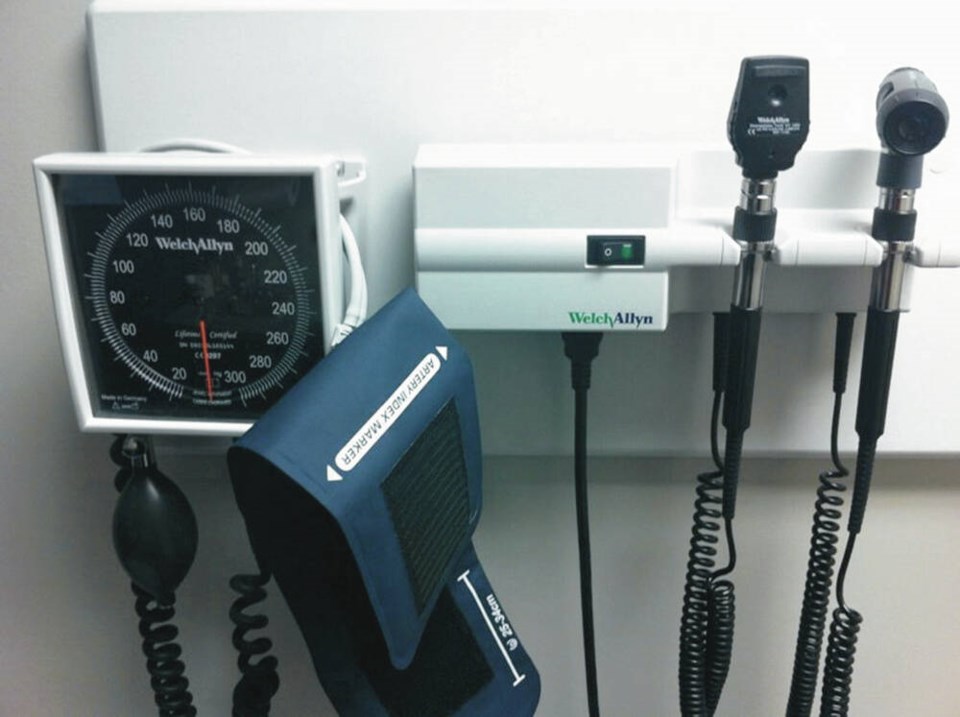The Doctors of B.C. applauded a large increase in health-care funding in the provincial budget this week, but says it’s disappointed by the absence of funding to help family doctors slash crippling overhead and recruitment costs amid a critical shortage of primary-care physicians.
“Of course I’m disappointed,” said Doctors of B.C. president Ramneek Dosanjh. “It’s really hard for doctors that have been doing longitudinal practice. If we want to retain them and recruit people, then we need to look at new funding.”
Doctors of B.C. had been looking to the budget for signs of funding to keep the doors of family practices open.
In 2017, 18 per cent of British Columbians age 12 and older did not have a regular health care provider. In the capital region alone, three walk-in clinics announced closures starting at the end of this month through April.
The budget includes $57 million in operating costs to bring the current 26 Urgent and Primary Care Centres in the province to 50. The capital costs vary widely but come in at about $4 million per UPCC.
“The majority of primary care is provided through family doctors,” said Dosanjh. “Urgent and Primary Care Centers alone cannot fill this need on their own.” UPCCs, which may be run by health authorities and offer doctors a salary or contracts, were created as a way to reduce the number of people heading to hospital emergency rooms, to attach patients to family doctors, and to provide mental-health, addiction and other health services. They are one part of a plan, in addition to primary care networks, to build up an integrated and team-based health-care system.
Ian Bridger, a family doctor and medical director for five family medical clinics and walk-ins in the capital region, said he applauds the government for taking action on a serious problem, but is concerned that UPCCs are absorbing money desperately needed in the existing system.
“I am very disappointed that there is vast support for the new and relatively un-tried government-based primary care clinics and apparently no help for private primary care clinics that have been the backbone of our system for so long, and have been starved of funds and so driven into failure,” said Bridger.
Bridger has long asked for a comparison of cost per patient and number of patients seen between the UPCC system and the private system.
“I am suspicious that care at the UPCC is costing between five and 10 times more per patient encounter than the private system,” said Bridger. He also maintains that UPCCs — some of which offer state-of-the-art exam and procedure rooms and are staffed with nurses and other health-care professionals — see fewer patients than private family practice walk-ins.
“How many longitudinal care patients are UPCCs actually looking after?” said Bridger.
The bulk of primary care is still done by private clinics, he said — ones in which family doctors own and run the practice.
“But it looks like they have been left without help, and this means we will inevitably see more clinics closing, with no one else to do the work,” said Bridger.
Dosanjh said doctors are leaving private primary-care practices in part because of rising operating costs and a lack of alternate forms of payment beyond the traditional fee-for-service model, where a physician bills the Medical Services Plan $31.62 per patient visit. The average doctor might pay about $85,000 to $100,000 annually in overhead.
The province and Doctors of B.C. have just started to renegotiate a Physician Master Agreement that expires March 31. A new agreement isn’t expected to be signed until the fall.
Among the most pressing concerns for doctors is the need to address overhead costs and fund online services permanently. Dosanjh is optimistic the agreement will bring about substantive change.



